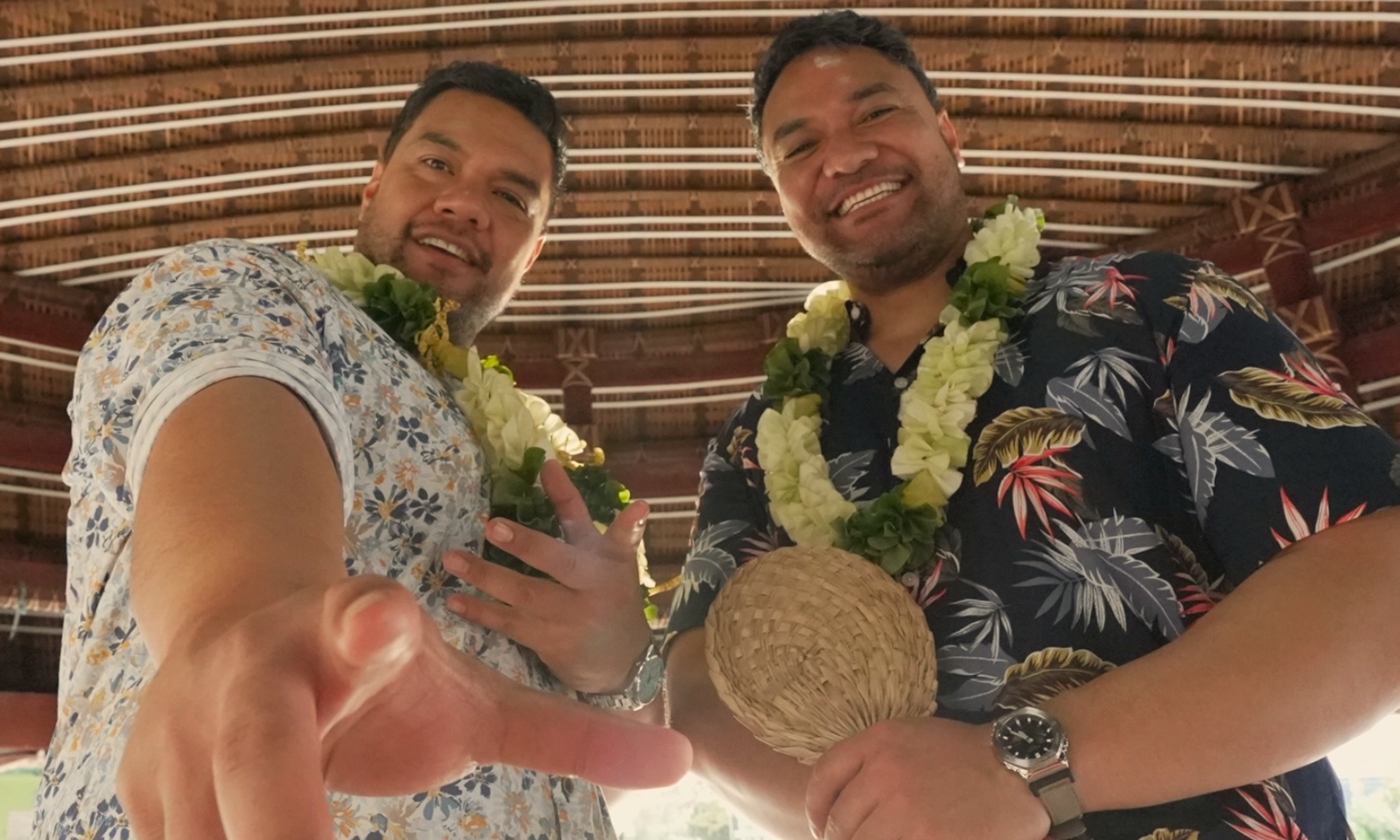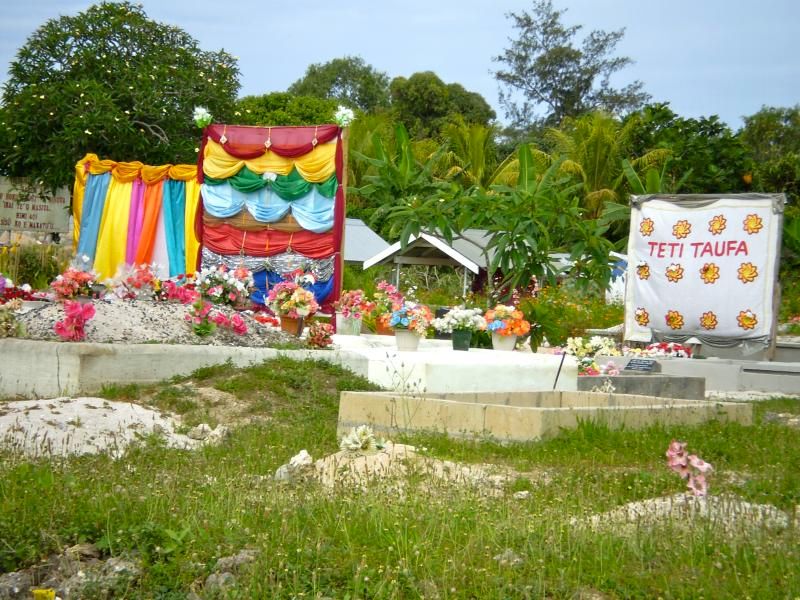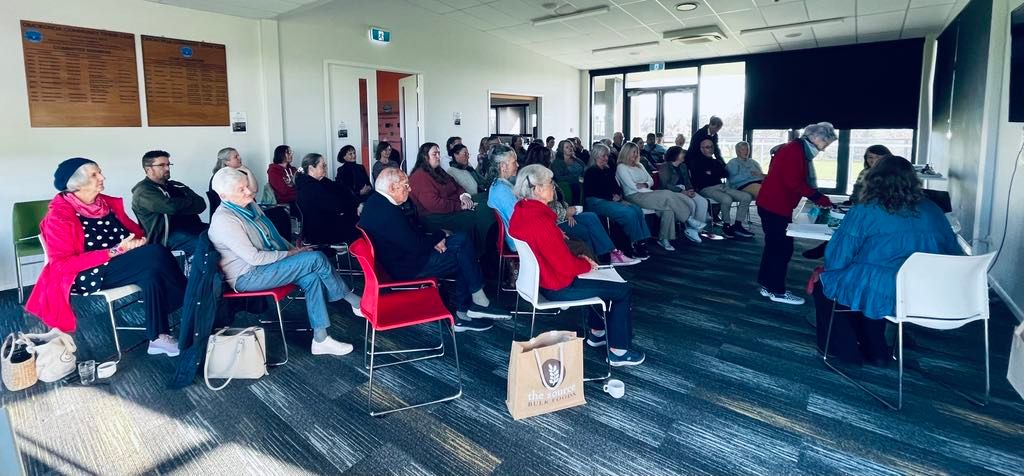

From left: Treza Gallogly, Victoria Ongolea and Fergus Wheeler urge families to consider their options around funeral costs.
Photo/Supplied/Unsplash
How Pacific families in NZ can honour their loved ones without breaking the bank
‘You don’t need to literally pay your respects’: Concern and advice from community advocates on funeral arrangements.


The Sāmoan Tenor named Pati who turned disadvantage into an operatic destiny

Naval officers face charges over sinking of HMNZS Manawanui

‘One of our most trusted leaders’: Tributes flow for a beloved rangatira

Argentina eyes Pacific Islands Forum dialogue partnership as NZ says nations must decide

The Sāmoan Tenor named Pati who turned disadvantage into an operatic destiny

Naval officers face charges over sinking of HMNZS Manawanui

‘One of our most trusted leaders’: Tributes flow for a beloved rangatira
For many Pacific families, funerals are a deeply cultural expression, but they also create financial strain.
Victoria Ongolea, a PhD candidate at the University of Auckland, says costs can quickly escalate to $10,000 or more.
“Doing things culturally, it can be expensive,” she says. “From coffins to the funeral ceremony, the burial site, feeding the family, and if you’re doing gifts as well for families and faifekaus (priests), that can also be pricey.”
To alleviate some of the financial burden, Ongolea has observed that some families are simplifying ceremonies.
“Instead of having it for the three days or 10 days, they just cut it short,” she says. “After the burial, they say, ‘This is it, everyone can go home’.”
She adds that the strength of Pasifika communities is evident in how families come together and share responsibilities.

Swanson public cemetery. Photo/Auckland Council
“Families gather together and everyone knows their roles … and they pull together their resources to make things lighter for the family.
“There's also traditional wealth or the non-monetary support that we provide, like the fine mats, tapa cloth or the ngatu - that they can have prepared in advance.”
Ongolea warns against borrowing to cover costs. “Before considering taking a loan, hold a family meeting and discuss the costs involved … because if you take a loan, you wake up and then you’re trapped in this cycle of indebtedness.”

A cemetery in Nuku'alofa, Tonga. Photo/Flickr/Tony Bowden
Planning ahead
Treza Gallogly, an end-of-life doula, says families can avoid both financial and emotional stress by talking about death earlier.
“For many centuries, we looked after our sick and our dying in our homes and in our communities … but within many cultures we’ve lost the ability to talk about death,” she tells Nemai Tagicakibau on Pacific Days.
Gallogly, who works with the End of Life Doula Alliance, says families often face reduced income before a death, followed by large funeral expenses. She encourages families to consider how they can contribute.
“With the right support in place, you can keep your person home for a few days after death so friends and family can visit anytime. Otherwise you might be paying up to $300 for a one-hour ‘viewing’ at a funeral home.”
Gallogly says sensitive conversations are part of reclaiming care at the end of life.
“If we don’t know what our options are, we miss out on beautiful and sacred time with our loved ones - having deep conversations before death, being by their side, and getting used to living without them.”
Watch Treza Gallogly's full interview below.
The cost of commercial funerals
Fergus Wheeler, chair of Death Without Debt, says people have been pressured into spending a lot of money to honour the dead.
“The influence has come from the West, but it's actually spread probably disproportionately to Māori and Pacific, which is a bit ironic,” he says. “It's part of colonisation.
“The practice of paying for a funeral and having a funeral director organise everything … that came from the States, and it's spread with a commercial imperative right around the world. Across all the cultures, Irish, English, Māori, the Pacific Islands … they used to do it themselves.”
Wheeler says their workshops reveal the extreme financial burden family funerals can create.
“One Sāmoan man told us his wider family had spent something like $80,000, and his nuclear family had to take out a loan to pay their share of that,” he says. “We hear of widows still paying off funerals 10 years later.”

Death without Debt runs workshops across NZ. Photo/Supplied
He believes family-led funerals are both cheaper and more meaningful, saying cremation can be as low as $1500 if families handle the paperwork and arrangements themselves.
“The most important part for most people is spending time with the body, putting flowers and beloved objects around, having the family gather, and then making a real ceremony of each stage.
“You organise your own service at church or home, and you respectfully put the person in the back of your station wagon or a hatchback, and you fill the car with flowers.
“It's the most respectful thing to take care of someone yourself. It's the sort of final act of love for many people.”
Wheeler also cautions against unnecessary add-ons, noting that embalming is often overused. In many cases, an electric cooling pad or natural methods can effectively delay decomposition for several days.

Waikumete Cemetery. Photo/Auckland Council
Burial or cremation?
As many Auckland cemeteries near capacity, burial plots can cost over $5000. But Ongolea says burial remains the preferred choice for many Pacific families.
“I don’t think cremation is culturally appropriate for most families … and with burial sites, anyone can go to the cemetery and pay their respects. That accessibility is really important.”
Wheeler urges councils to educate locals about their rights, emphasising that families do not need to rely entirely on funeral directors. He warns that some insurance policies can lock families into costly funeral packages and services they may not need.
“You don’t have to literally pay your respects.”
Dying Matters Awareness Week in New Zealand runs from 1-7 September, featuring events, workshops, and resources to help families navigate these conversations and decisions.